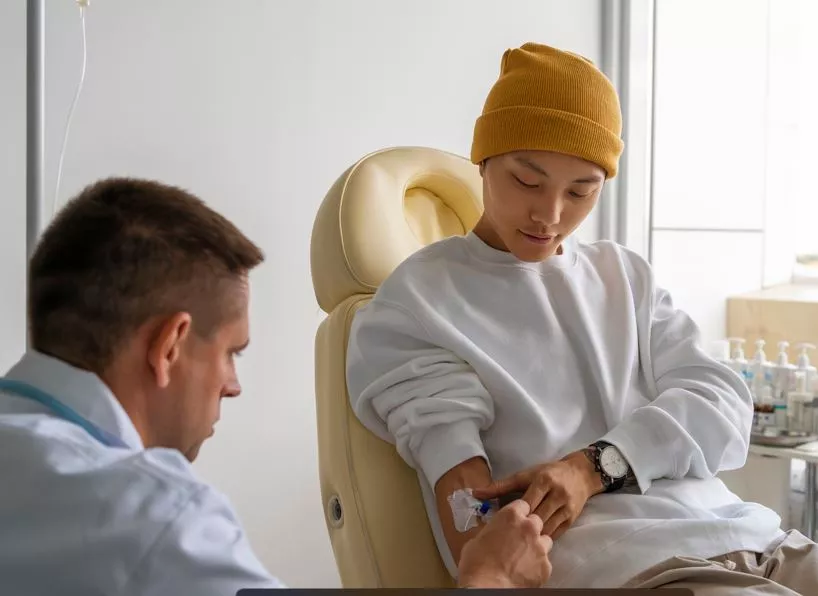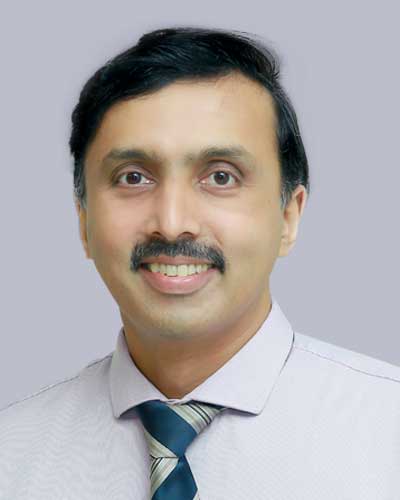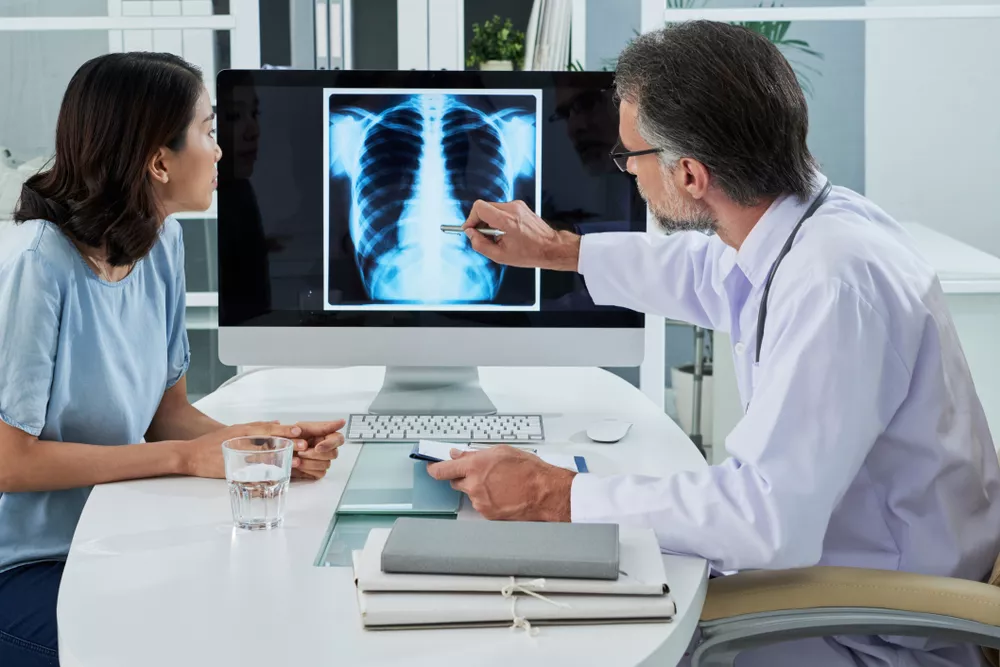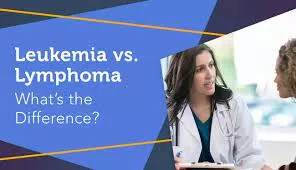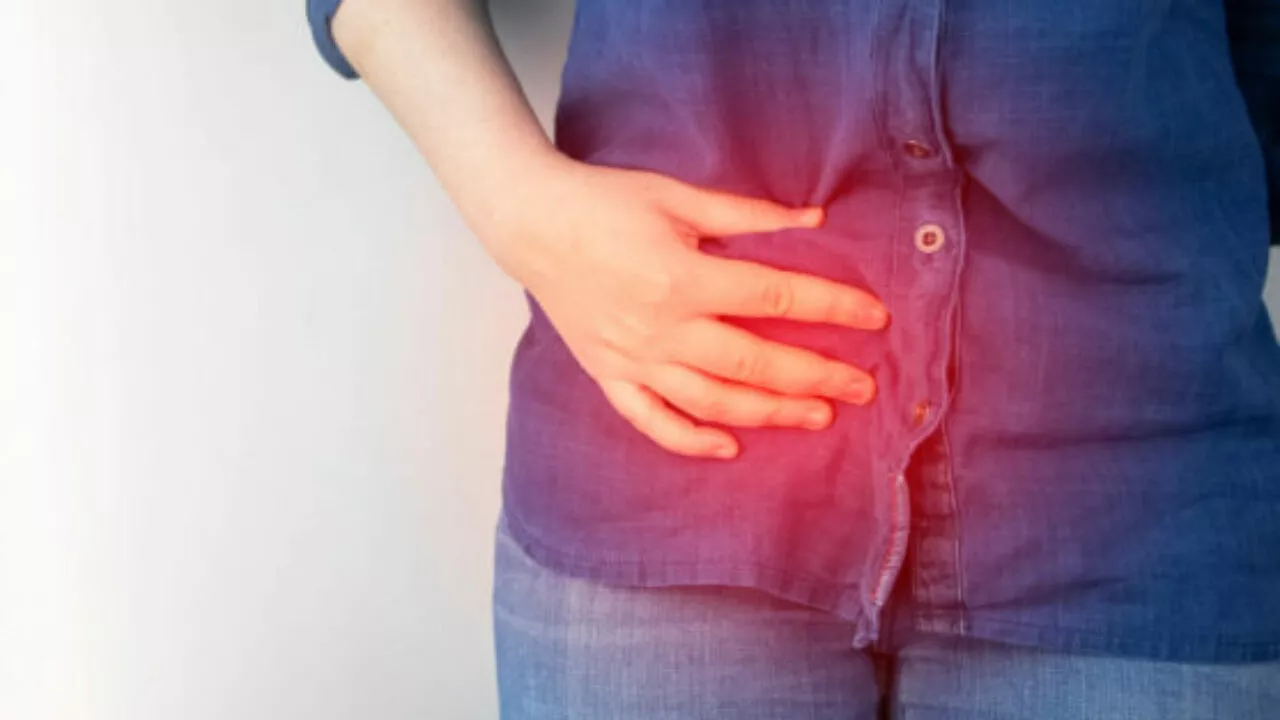What is cancer?
Cancer is a group of diseases that occur when healthy cells turn unhealthy. These harmful cells multiply quickly and spread.
Aster Medcity's best oncologist in Kerala can detect cancer early, and new medicines are available developed to help cancer patients. If you are seeking expert care, consulting an oncologist in Kochi Kerala at a reputed oncology Hospital in Kochi Kerala like Aster Medcity ensures access to advanced treatment options. Scientists are also aware of factors that increase your risk of developing cancer, allowing them to intervene before it begins.
What Causes Cancer?
Cancer develops when something goes wrong with your body's cells. This is caused by changes in the DNA, which might be inherited from your parents or caused by environmental factors.
Things from the outside that can cause cancer are called carcinogens. They are as follows:
Things that give off radiation or strong sunlight.
Harmful chemicals like those in cigarettes, asbestos, and polluted air.
Bacteria and viruses.
Some harmful lifestyle choices include smoking, excessive drinking, and eating unhealthy meals.
Cancer is also made more likely by certain health disorders and ageing. The danger increases with age.
Kinds of Cancer
Cancers are named after the location where they begin and the type of cells that make them up. They preserve their original name even if they relocate to different places of your body. For example, if cancer begins in the lungs but spreads to the liver, it is still referred to be lung cancer.
There are various names for different forms of cancer, such as:
Bladder cancer, Bone cancer, Brain cancer, Breast cancer, Cervical cancer, Colon or colorectal cancer, Endometrial cancer, Esophageal cancer, Gallbladder cancer, Kidney or renal cancer, Laryngeal cancer, Leukemia, Liver cancer, Lung cancer, Lymphoma, Ovarian cancer, Pancreatic cancer, Prostate cancer, Rectal cancer, Skin cancer, Gastric cancer, Testicular cancer, Thyroid cancer, Uterine cancer, Vaginal cancer.
Why Is Early Detection Important?
Early detection of cancer is important. It improves treatment and saves lives. Cancer screenings are available to check for the presence of cancer. These are tests that look for cancer symptoms before you get sick.
Typical screenings include:
During routine checkups, cervical, breast, colon, and prostate cancer screenings are performed.
Lung cancer screening determines whether you are at risk.
If you are concerned about skin cancer, consult a dermatologist.
Colorectal cancer screenings often begin at the age of 45.
Mammograms are used to screen for breast cancer in women over the age of 45 (or earlier if at high risk).
If you have a cancer family history or are at high risk, your doctor will advise you on when to get screened.
Why Early Detection is Important?
Discovering cancer in its early stages is crucial. It improves the efficacy of therapy and reduces the risk of death.
Cancer Screenings
Screening tests are used by doctors to detect early indications of cancer. Here are some examples of common screenings:
They can check for cervical, colon breast and prostate cancer during routine check-ups.
If you are at risk, they may conduct routine lung cancer screenings.
If you are concerned, a dermatologist can examine your skin for symptoms of skin cancer.
The American Cancer Society recommends frequent colorectal cancer tests beginning at the age of 45, usually with a colonoscopy. Certain colorectal tumours can also be detected with at-home diagnostics.
Mammograms, or breast cancer X-rays, are advised for women over 45 (or sooner if there is a high risk).
If you have a family history of cancer or are at greater risk, follow your doctor's recommendations for when to get screened.
Recognising Cancer Symptoms
Sometimes, cancer shows signs like
Bumps or lumps on your body.
Losing weight without a clear reason.
Feeling feverish.
Being very tired.
Feeling pain.
Night sweats.
Digestive changes.
Skin changes.
Cough.
Different cancers can show different warning symptoms. If you are experiencing strange symptoms, you should consult a doctor to determine what is causing them.
How Do Doctors Detect Cancer?
When doctors suspect cancer, they do an extensive examination. They will inquire about your symptoms as well as your family history. Then they utilise the following approaches to find out:
Blood Tests
Complete Blood Count (CBC): This checks your blood cells.
Tumor Markers: These are substances linked to cancer.
Blood Protein Tests: These tests evaluate specific proteins that can change as a result of malignancy.
Imaging Tests
CT Scan: It searches your body for tumours.
X-rays are used to create images of your bones and tissues.
PET Scan: This scan shows how your organs work and can detect early signs of cancer.
Ultrasound: It uses sound waves to see inside your body.
MRI: This procedure produces detailed images of your organs.
MIGB: A specialised test for detecting specific types of cancer.
Biopsies
A biopsy is a procedure in which doctors remove a small bit of tissue or cells to examine under a microscope. There are several types:
Needle Biopsy: A thin needle extracts cells or tissue from suspicious lumps.
Skin Biopsy: A little portion of your skin is removed to diagnose skin cancer.
Bone Marrow Biopsy: A sample of your bone marrow is taken to screen for illness.
Endoscopic or laparoscopic biopsies: A scope is used by doctors to look inside your body and take samples.
Excisional or incisional biopsy: A surgeon removes all or part of a tumour by cutting and removing it.
Perioperative Biopsy: A biopsy performed during another surgery that provides prompt results for treatment.
Genetic Analysis
Some tumours have been linked to genetic alterations. Doctors may advise genetic testing to rule out inherited cancer risks. It can also assist in determining the appropriate treatment. They use the data to assign a stage to your diagnosis, which indicates how far the cancer has spread.
Conclusion:
Finally, we must emphasise the importance of early detection and continued research in the fight against cancer. Maintaining a healthy lifestyle, staying knowledgeable about potential risk factors, and obtaining timely medical assistance can all help avoid and fight this condition. Cancer is a powerful foe, but with the dedication of the best oncologists in Kerala and researchers, as well as the courage of those who face it, there is hope for a bright and cancer-free future. For comprehensive care, patients can rely on a trusted cancer Hospital in Kochi Kerala, where expert oncologists provide world-class diagnosis and treatment.
